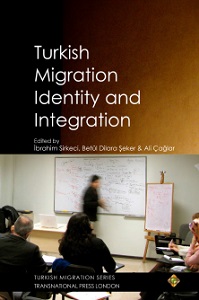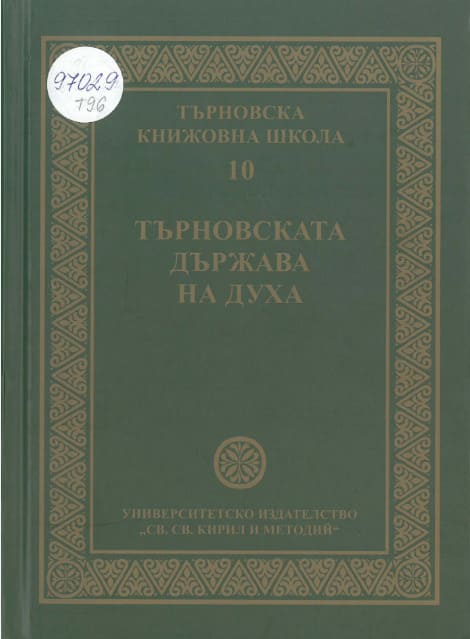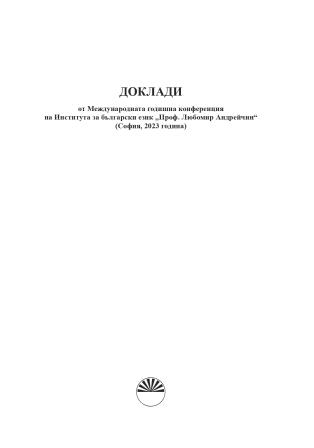
We kindly inform you that, as long as the subject affiliation of our 300.000+ articles is in progress, you might get unsufficient or no results on your third level or second level search. In this case, please broaden your search criteria.


The article treats the means of expression of hesychastic apophaticism, used by Old Bulgarian writers of the 14th – 15th centuries, and the author tries to show that these means are very old, and were characteristic even for the mind of primitive people. He pays attention to the synonymy of ‘aphophatic’ negative pronouns and ‘cataphatic’ summative pronouns; to the pleonastic use of the negative particle не; to the syntactic but- constructions; and to necessative constructions.
More...
The study is dedicated to the Hungarian loanwords in the Slavic kinship terminology. The linguistic material is collected from Volume XI Degrees of Kinship prepared by the Bulgarian National Commission as part of the Slavic Linguistic Atlas. The object of analysis are the loanwords of Hungarian origin in the Slavic dialect kinship terminology. The aim of the research is to show the source of the borrowings, the particularities of their adaptation, dialects where they are found. Special attention is also paid to Slavic loanwords adopted in Hungarian that have later been reborrowed into various Slavic dialects.
More...
The paper applies a systematic approach to the etymologization of Bulgarian dialect words of Turkish origin. The object of analysis are Turkish loanwords with initial a- from the Dictionary of an archaic Rhodope dialect – the dialect of Ropkata, published in 2022. Specific phonetic changes are described, whose regularity in the dialect helps to find other dialectal variants of the words under consideration and to identify the Turkish primary source. The analyzed words are not included in Volume I of the Bulgarian Etymological Dictionary, and the majority of them are not reflected in the corresponding entries of the Dictionary of Turkisms in Bulgarian, so they are related to the respective etymological word families for the first time. Clarifications, additions and corrections are made to some of the existing etymologies or a new etymological interpretation is proposed. Emphasis is placed on the variation of the borrowed dialect lexis, which is of great importance for discovering the foreign language etymon.
More...
In this publication, I revisit the origin of the Slavic ethnonym Croat, which does not have a generally accepted etymology, and the attempts at explaining it are numerous – from ancient times to the present day. I summarize the main hypotheses and present the most plausible one, which is accepted by most specialists today.
More...